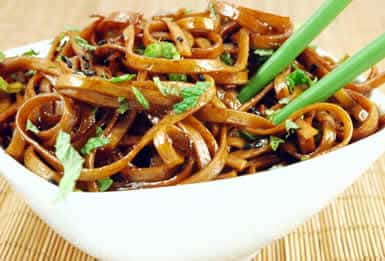What can you really learn when you go abroad for school? A foreign language? The subject you choose to study? No, you really learn how to cook, because often nostalgia starts not from the heart, but from the palate.
When I think about home, I think of a dining table where the whole family gathers around. The food is abundant, and laughter and steam alike fill up the room. In the Chinese culture, food is extremely important. An almost cliché example is that when you greet someone in Chinese, the phrase you use is (literally): “Have you eaten?” And certain kinds of dishes carry almost symbolic importance. For example: chicken broth. This clear, translucent and almost golden broth is believed to be especially nourishing. Growing up, it was what my grandparents cooked every weekend when we went to visit; it was what I had every time I got sick. In the Chinese household, food becomes a gesture of love. Chinese parents may rarely say “I love you” out loud to their children; what they often say is, “I made chicken broth for you today, and here, have a drumstick.”
Feminists often want to liberate women from kitchens. Florence Nightingale once said something along the lines of, “How could a woman write poetry if she is holding a frying pan all day?” For me (a self-proclaimed feminist), however, holding a frying pan is an equally important, respectable and beautiful task as writing poetry (or research papers, in my case) because cooking is a way of loving.
When I went home this summer, the first thing my mom said to me at the airport was, “We have a pot of chicken broth waiting for you”; and before I came back to the US, my boyfriend told me, “I went to the market and stuffed the fridge, so just come back already.” This July, when my friend’s parents came from China to visit, they cooked and invited us to dine with them. While sitting there at the dining table, halfway across the ocean in an English-speaking land, having food that recalled a distant childhood memory, I blurted out: “This feels like home.” For me, the best kind of food is the kind made with love–whether it is Chinese, American, or simply Fusion-style.
出国留学真正学到的是什么?——语言、或者专业?不,是做饭。因为在很多时候,乡愁往往从胃开始,一漾一漾,才到心里。
当我想家时,往往想到的是全家团聚的餐桌:一大桌菜,笑语盈然。饮食在中国文化中地位深重,一个老生常谈的例子便是,中国人常用“吃了吗?”互相问候。而某些特定的食品,更是成为了某种象征:比如鸡汤,我们相信这种金黄透明的汤汁有着特别的营养——从小到大,这是每周六去爷爷奶奶家时餐桌上的收尾,也是生病时用来补充营养的特别的“补药”。中国家庭里,食物成为表达情感的载体。中国父母往往极少对孩子说“我爱你”,但他们常说:“今天做了鸡汤——来,吃个鸡腿。”
女权主义者往往想将女子从厨房中解放出来。南丁格尔曾经说,女人握着炒锅和扫帚太久,就握不起诗笔和画笔了。可是作为一个自我标榜的女权主义者,对我来说,握着炒锅与写诗画画写论文,同样优美而值得尊重。食物里有人情,而做饭往往也是爱意的表达。
暑假回家,在机场时妈妈和我说的第一句话是:“家里已经有一锅鸡汤在等你了。”而返回美国前,男朋友在电话里说,“我今天去超市刚买了一只鸡,炖了汤等你。”七月,朋友的父母来美国,做了一桌菜,请我们同吃。于是,隔着一个海洋,在这个说英语的国度里,我看着一桌冒着热气的饭菜,脱口而出:“好有家的感觉啊!”——对我来说,最好的食物里,总有人情。


